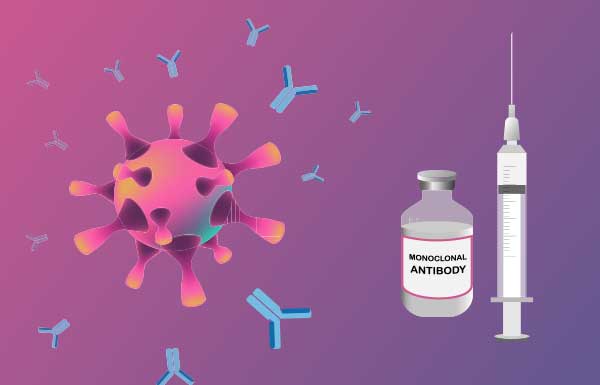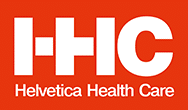The Comprehensive Range of Monoclonal and Polyclonal antibodies against Infectious Agents

An antibody is a significant component hosting immune responses to viral pathogens, or other foreign invaders, such as chemicals, toxins, and pollens referred to as antigens. Antibodies can change to be highly specific to viral antigen-binding because of their unique maturation process. When an unknown substance invades the body, the immune system can identify it as unfamiliar because molecules on the exterior of the antigen differ from those found in the body.
To get rid of the unfamiliar substance, the immune system calls on a number of mechanisms, as well as one of the essential antibody productions. Antibodies are formed by specialized white blood cells, namely B lymphocytes (or B cells).
When the antigen connects to the B-cell surface, it vitalizes the B cell to split and mature into a group of indistinguishable cells termed as clones. Mature B cells, identified as plasma cells, stow a lot of antibodies into the bloodstream and lymphatic organism. Physicians and researchers rely on such high particularity in their quest to understand host, viral interaction and viral pathogenesis mechanisms and to find possible treatment for diseases and viral infections.
Monoclonal antibody (mAbs) is certified for use all through the European Economic Area directed against an infectious agent. It targets Clostridium difficile toxin B and aims to put a stop to the frequency of the Infection in adults at high risk of a recurring attack.
Palivizumab is a monoclonal antibody which is used to prevent severe lower respiratory tract disease requiring hospitalization caused by a respiratory syncytial virus (RSV) in children at high risk for RSV disease. Palivizumab reduces the risk of hospitalization by around 50%.
Infections for which mAbs have been added to the therapeutic collection and stressed their potentiality in defining a readily available safeguard tool against biothreats and newly up-and-coming and re-emerging transmittable infectious agents.
Astute antibody fragment development and design allow it to be used in different applications, techniques and instrumentation. All types of antibodies specific, polyclonal (pAb), monoclonal (mAb) and recombinant monoclonal (rAb), comprises both pros and cons as research tools have characterised and distinguished from each other.
Antibodies against infectious agents
1. Influenza
Influenza virus infections are prevalent and usually cause mild illness. Sporadically influenza virus makes a considerable change that preserves its virulence, similar to the case in 2009 pandemic H1N1 strain. The large antigenic drift renders the seasonal flu vaccine of limited efficacy.
2. Human immunodeficiency virus (HIV)
Regardless of decades of intensive effort, an effective HIV vaccine continues to be a challenge. Recent advances help in identification of broadly neutralizing antibodies from a single memory B cell of infected individuals. Anti-HIV antibodies are becoming a feasible approach for both prophylactic and therapeutic treatment of HIV infection and AIDS.
3. Respiratory syncytial virus (Palivizumab, Motavizumab-YTE, Motavizumab)
FDA approved Palivizumab, which binds to the F glycoprotein of the RSV for prophylaxis in children susceptible to severe disease. Motavizumab is an affinity matured derivative of Palivizumab, tenfold more potent than Palivizumab in F glycoprotein binding. Even though there is an improvement in Motavizumab and Motavizumab-YTE over Palivizumab, clinical benefits are considered additional, not being approved for clinical use.
4. Human cytomegalovirus(HCMV)
HCMV is an element of herpes. HCMV has a lifelong latent infection in its host, with casual reactivation. The Infection is a general asymptomatic, but it can cause severe disease in people who have compromised immune systems such as transplant recipients and AIDS patients with HIV infection.
5. Dengue
Dengue is the world’s most prevalent mosquito-borne disease, with an estimated 390 million people each year becoming infected and around 40,000 deaths annually. Severe dengue, combined with Infection with different strains of the virus, is characterized by vascular permeability, bleeding from mucosa and intestinal tract.
Dengue antibodies at sub-neutralizing concentrations may enhance uptake of dengue virus in a way that dramatically aggravates symptoms (antibody-dependent enhancement, ADE) Therefore, the development of vaccines has been the focus for dengue control.
6. Ebola, Zika
The epidemic of Ebola in West Africa affected 28,652 people, leading to more than 11,325 deaths. The lessons learned from the handling of that high mortality rate epidemic is to contribute to the call for taking innovative countermeasures against emerging infectious diseases, including the use of mAbs.
Efforts to isolate potent neutralizing antibodies against Ebola are ongoing. These highly concentrated neutralizing mAbs manage to serve as promising candidates for prophylactic and therapeutic interventions against Ebola.
Conclusion
The market for antibody drugs has experienced explosive growth as new medicines are being approved. Human antibody drugs are used to treat numerous diseases, as well as highly effective diseases like cancers, autoimmune, metabolic and infectious diseases.
Passive transfer of antibodies for the prevention and treatment of viral infections is easy to manage. Still, the high cost associated with antibody therapies is prohibitive in prophylactic use of antibodies for intractable viruses such as HIV and influenza A virus for a large population, particularly in low-resource areas. One alternative to passive administration of antibody therapies involves the delivery of transgenes encoding well-characterized neutralizing antibodies by a vector.
Contact Helvetica Health Care to know more about Monoclonal and Polyclonal antibodies.
